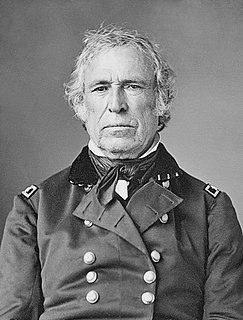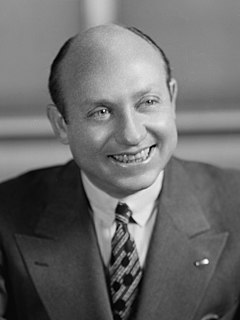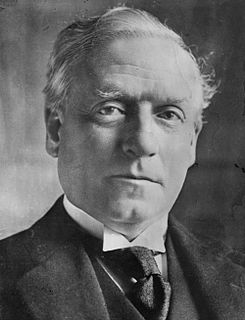A Quote by Henry James
The only obligation to which in advance we may hold a novel, without incurring the accusation of being arbitrary, is that it be interesting.
Quote Topics
Related Quotes
If these precedents are to stand unimpeached, and to provide sanctions for the continued conduct of America affairs-the Constitution may be nullified by the President and officers who have taken the oath and are under moral obligation to uphold it....they may substitute personal and arbitrary government-the first principle of the totalitarian system against which it has been alleged that World War II was waged-while giving lip service to the principle of constitutional government.
In the sacred fact of obligation you touch the immutable, and lay hold, as it were, on the eternities. At the very center of your being, there is a fixed element, and that of a kind or degree essentially sovereign. A standard is set up in your very thought, by which a great part of your questions are determined, and about which your otherwise random thoughts may settle into order and law.
If I am asked what we are fighting for, I can reply in two sentences. In the first place, to fulfil a solemn international obligation . . . an obligation of honor which no self-respecting man could possibly have repudiated. I say, secondly, we are fighting to vindicate the principle that small nationalities are not to be crushed in defiance of international good faith at the arbitrary will of a strong and overmastering Power.
"Unputdownable" is, I suppose, something we all dream of, maybe without knowing it. I realized, some time ago, that a novel can hold a lot, and it made sense that this one was not of the sleek and economical variety, but instead the "full" type. Novel as piñata. And the reader does the whacking. I had a central idea, which is to look at what happens to talent over time.
In the first place, it is obvious that not only is wealth concentrated in our times but an immense power and despotic economic dictatorship is consolidated in the hands of a few, who often are not owners but only the trustees and managing directors of invested funds which they administer according to their own arbitrary will and pleasure. This dictatorship is being most forcibly exercised by those who, since they hold the money and completely control it, control credit also and rule the lending of money.
I always write a draft version of the novel in which I try to develop, not the story, not the plot, but the possibilities of the plot. I write without thinking much, trying to overcome all kinds of self-criticism, without stopping, without giving any consideration to the style or structure of the novel, only putting down on paper everything that can be used as raw material, very crude material for later development in the story.







































